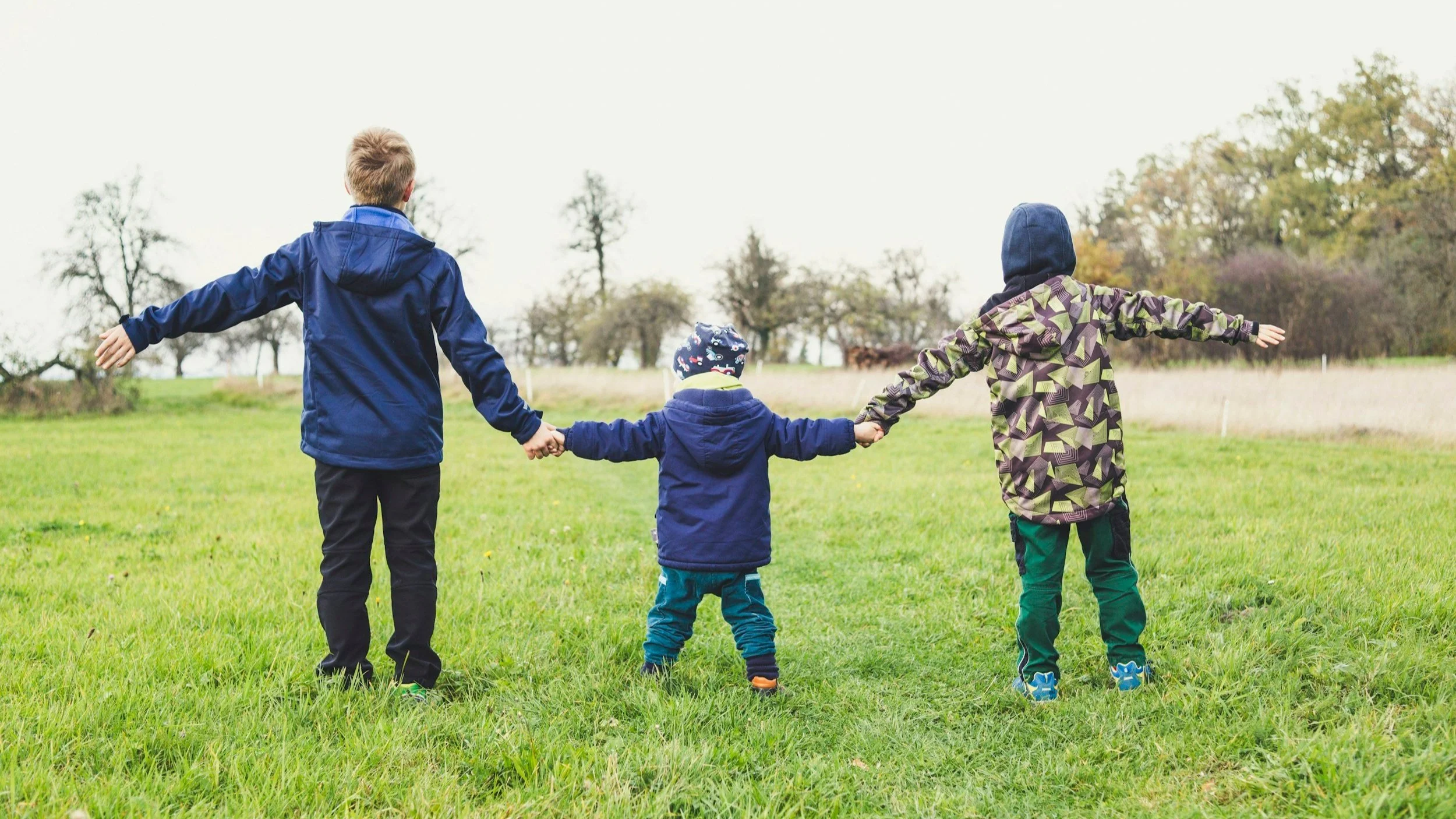The (Not So) Serious Business of Philosophy With Kids
“Philosophy” seems like a big, serious word for a big, serious practice, with all kinds of emotional and intellectual baggage attached. Even just the mention of it intimidates a lot of adults, conjuring images of ancient thinkers in togas, or academics with furrowed brows. Philosophy feels like something deep, cerebral, and even tiring.
And maybe it is…for adults.
New Year’s Resolutions For Kids?
The very best part of opening a discussion with a child at the end of the holiday season is having a chance to pause and think together. It’s not only an opportunity to hear their thoughts, but it can set the tone for a very think-y new year!
Monsters, Candy, and Big Questions!
While you’re decorating the front yard, putting the finishing touches on costumes, and planning your route for trick or treating, give one of these Halloween-themed activities a try.
Want To Talk Politics With Your Little Thinker?
No, you don’t have to bring up current events or any specific political figures in order to chat about politics with a young mind. Start with fun activities like these, that deal with bigger concepts, and as your child gets older, they’ll have a good, solid foundation for more detailed, complicated discussions.
Kids, Plants, and Big Questions
Even tiny wee kids have big thoughts about plants and trees, and there’s certainly no lack of inspiration to be found in their surroundings. Encourage your little thinker to branch out with their ideas, and you won’t be-leaf how your conversations with them will blossom.
Risk Taking And Philosophy
Here’s the thing we, as adults, overlook: doing philosophy feels far riskier to us than it does to younger thinkers. Kids, especially little ones, don’t balk at taking these kinds of risks. Big questions aren’t daunting, jumping into conversations isn’t a big deal, and potentially looking a little silly doesn’t really phase them.
How To Help Your Child Understand the Value of the Humanities
Our kids need to be well-rounded, adaptable, and innovative in order to thrive in this our current circumstances. They need social-emotional intelligence and global awareness, as well as the ability to question and problem-solve. Fostering an appreciation and fondness when our kids are little means that they’ll be more likely to keep at least a toe or two dipped in the humanities as they grow, so they can enjoy the benefits.
Taking Little Thinkers From “Me” To “We”
Right about now, it seems as though empathy, compassion and connection are in short supply. If there’s a way to help our kids keep these things at the front of their minds, why not make it a priority? If it helps us grown-ups to recapture some of our sense of “we”, then all the better!
The Importance of Changing Our Minds
Changing our minds is about being open to new ideas or ways of doing things. It’s being curious and flexible enough to give new ideas a chance, while still being critical and skeptical before accepting and adopting them. Changing our minds involves being nimble, adaptable, and willing to see and evaluate all kinds of possibilities. It’s knowing when it’s justified to hold onto something, and when it’s necessary to let go of it.
How Philosophy Can Create Bonding Moments With Kids
Believe it or not, doing philosophy with your kids is an amazing way to help these moments to happen. It’s true that philosophy is incredibly effective in helping kids develop essential thinking skills and equipping them for their adventures out in the world, but it’s also true that it can bring incredible connection and closeness with children.
Talking Peace with Kids
Peace is something we long for all year round, really, but it seems to be baked into the holiday season. With current world events, it’s even more prominent in our minds, and at times like these, it feels like it’s in short supply. If it’s difficult for an adult to get their head around a huge concept like peace, we can imagine how a kid feels.
What We Can Learn From Little Thinkers
There’s no better way to keep ourselves feeling young than to think like a young person. It’s not only okay to give ourselves permission to be “childish” once in a while, but it’s good for inquiring minds of all ages.
Is The World Too Much For A Little Thinker?
Most kids are grateful for and enthusiastic about being included in important conversations. They can handle difficult information if it’s presented in the right way. The long and the short of it is that kids don’t just want to know, they need to know.
Big Questions About The World Of Work
From a very early age, kids are curious about what it means to work. As we’ve seen over the past few years, the definition of and attitude toward work have changed a great deal. Chances are, a lot of our kids will make their living in careers that don’t yet exist.
So, why not make work a topic of conversation with your kiddo?
Thinking Our Way Back To School
School is a big deal, and rather than making it a source of nerves, why not make it something to explore and discuss? As is the case for many things, kids get a kick out of peeking behind the curtain and digging a little deeper into education. It might even motivate and empower them as learners, help them find their place in their school and get the most out of the coming year.
Helping Your Child Understand the Why of Emotions
There’s no quick fix when it comes to regulating our emotions, and maybe that’s a good thing. Taking time to slow down, reflect, and discuss could give you and your little thinker an amazing opportunity to really understand not just what they’re feeling, but why they’re feeling it. A child’s emotional intelligence deserves and requires time, effort and exploration, and not just management techniques.
How To Set An Example As A Thinker
Do all the regular things you’re supposed to do as examples for your kid. Eat your vegetables, bathe regularly, get some sleep, and mind your manners. Just don’t forget, on a regular basis, to model being a thinker. They’ll thank you for it later.
Raising The Right Kind of Rebel
Kids are wired to question, to ask “why”, to challenge ideas and decisions. It’s not the easiest part of parenting, but if we play our cards right, we can channel this drive into something productive, something that will help our kids to be better thinkers, and better citizens of the world.
What’s Summer For?
They’re all good uses of two months off, but it’s really important to note that for a kid, learning doesn’t stop when school finishes. They may not be keen to do math worksheets and grammar exercises, but they do eventually (sometimes quickly) get bored if they aren’t kept engaged and thinking. Summer is the perfect time to brush up on and build thinking skills, and your kid doesn’t even have to know they’re doing it.
Kids and Filters
What we need is filters for our kids, ways for them to determine what’s useful, appropriate, and accurate. We need them to be picky about the information they accept and consume.





















